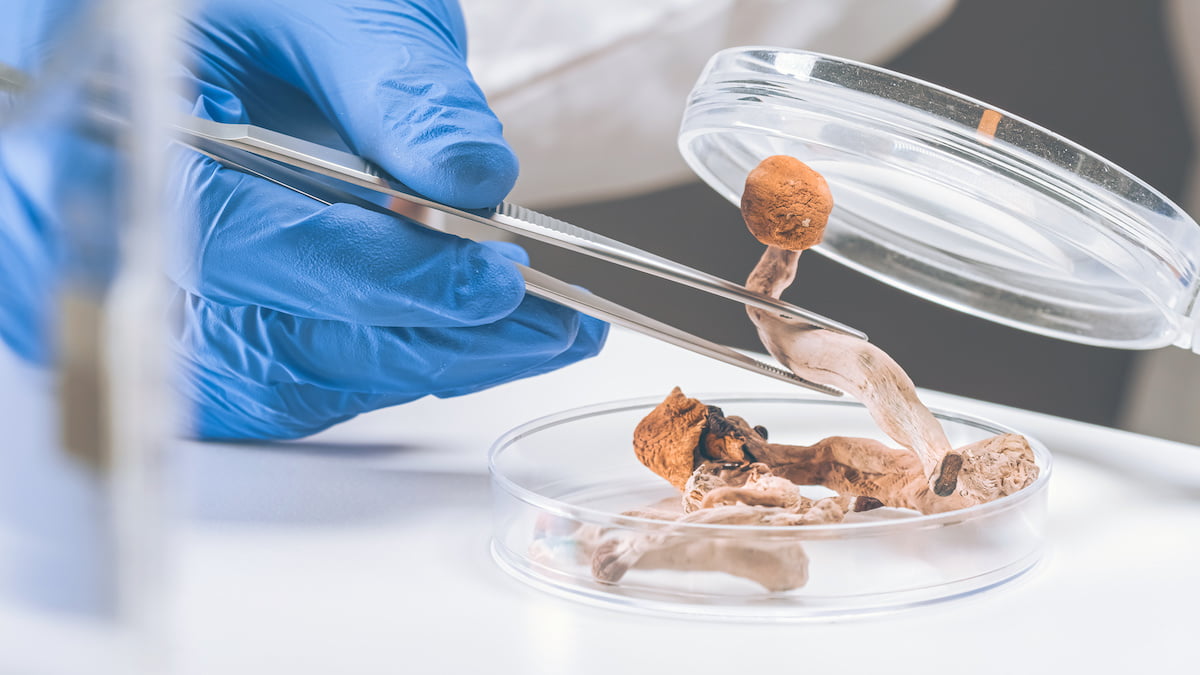UK company Clerkenwell Health is working to develop a gold standard in the delivery of psychedelic care.
Clinical trial company Clerkenwell Health is embarking on institutional partnerships to conduct psychedelic research and drug development, helping psychedelic compound manufacturers commercialise their products. The company is also building the first custom-designed Centre of Excellence for psychedelic clinical trials.
By focusing its research on the benefits of therapy alongside supportive technologies, Clerkenwell aims to create a best-in-class, regulatory approved framework for delivering psychedelic-assisted psychotherapy.
Clerkenwell CEO Tom McDonald and CSO Dr Henry Fisher spoke to Psychedelic Health about its plans to accelerate the development of efficacy data and help deliver psychedelic clinical trials at speed and scale.
Set and setting for optimal patient outcomes
Clerkenwell is setting up its Centre of Excellence in 2022, which will be built with set and setting in mind – aiming to create beautiful spaces that will optimise outcomes for patients.
McDonald commented: “There has been a bit of a shift over the past 15 to 20 years towards more speciality clinical research outfits and we think psychedelics, in particular, are really relevant for this.
“Typically, trials at the moment – be they for oncology or viruses, or now, psychedelics and mental health – they are typically taking place in pretty unpleasant looking environments. So, out of the back of a university hospital is really the option that companies have got here in the UK at the moment.
“We will be creating a really beautiful setting – more akin to the priory than a university hospital – out in a nice remote place. The rooms will be designed specifically to be conducive to a positive psychedelic experience that might therefore get incremental gains in the outcomes that the patients are going to receive.
“This is what is needed to drive the industry forward. We have also got an ambitious scale-up process that will go hand in hand with our partners’ drug development, as they are looking to increase the number of sites and then potentially increase the number of countries as well.”
Best-in-class psychedelic therapy training
Clerkenwell is working with The University of Manchester to design its own study exploring the therapy component of psilocybin depression treatment.
The team aims to build a best-in-class, accredited therapist training programme aligned with regulation, working closely with Dr Sara Tai, a senior lecturer in clinical psychology at the University of Manchester. Dr Tai, who previously helped design the therapist training programme for COMPASS Pathways, focuses her research on the similarities and differences between types of therapy.
“We think there is a real uniqueness to psychedelics – unlike any other drugs really in the history of them, the talking therapy component is so important for the vast majority of these conditions,” said McDonald.
“So, by building expertise in understanding what therapy works, working across a range of different psychedelic compounds and a range of different conditions, we are going to be able to build a real best-in-class, therapist training programme that is closely aligned to what the regulators know and understand, and we will look to get that accredited by a serious body.
“There are still a lot of unknowns around the therapy component of these treatments, so we were looking to do some really interesting bits looking at depression – but specifically drilling into the therapy component and what digital therapeutics could be doing to help support the patient in addition to that.”
Fisher commented: “What we are very conscious of is the data on what types of therapy work and how the different types might benefit different people – interrogating how we can optimise the therapy for patients and optimise technology that sits alongside it to support the sustained efficacy of treatment.
“I think one of the key things that may come out of some of the other trials that have been conducted is that it might be hugely effective in the short to medium-term, but actually if there is not ongoing support – just as with therapy without psychedelics – actually, depression can creep back in.”
Supporting the development of psychedelic care
Clerkenwell is currently working with Octarine Bio, which is which using yeast fermentation to produce psilocybin from sugar, to design clinical trials.
“They’ve been working with the biosynthesis of various different compounds, they started with cannabinoids and now are looking to develop psilocybin as their first entity but potentially others down the line as well,” said McDonald.
“We will provide everything from very early stage clinical advisory services, helping them design the study that they want to run, and then actually operationalising that when our site is ready in quarter two of next year. We are also likely to start engaging the regulators on their behalf in the not too distant future.”
In its partnership with Octarine, Clerkenwell has been epxloring conditions that have very poor treatment options available and identifying indications it believes psilocybin-assisted therapy is going to be beneficial for.
“Octarine’s development is going to be more viable than the traditional lab development models, and also, when done at scale, is going to be considerably cheaper than others out there as well so, we are really hoping that helps with patient access – identifying a niche condition that has very poor treatment options and then providing a drug and this is associated therapy at a reasonable cost.
“When you start looking at the impact on quality of life or whether people are able to return to work and therefore get back into paying taxes, all of those downstream impacts are what we think is really interesting. Looking at some of those early-stage results where people are coming out after a single or two doses are at three months or potentially even six months are essentially symptom-free or heavily-reduced is where we think that there is real value.”
Fisher added: “The whole point of what we are trying to do is help companies that are want to bring these drugs to markets, build the data that is required to present to regulators, and do so in as an efficient and timely way as possible – being very conscious that either the current options either don’t have the correct facilities to be able to generate the best data.
“Ultimately that will be the way that these drugs can get into patients hands as quickly as possible.
“I think something that Europe, but also the UK especially, has to their benefit here is that it has really strong research. Imperial College London and King’s College are world leaders in psychedelic research – since the start of the psychedelic renaissance.
“That gives us a really strong basis on which to build collaborative research – there is a rich ecosystem of researchers that are keen to work with different people, and organisations that are just looking to push the whole sector forwards.
“We’re hoping to fit into that, where we can both work with the for-profit in the space and partner with other organisations and researchers, helping to deliver the trials that require input from different areas.”
Fisher, who started working in psychedelic research in 2015 at the Beckley Foundation, drug policy think tank, Volteface, The Loop, campaigning for drug reform, before founding Hanway Associates a cannabis sector advisory firm, continued: “It’s just wonderful to come full circle from where I started. I had a real passion for the potential of psychedelics years ago when it was only in the academic sphere. It didn’t look like this was anywhere near on the horizon. Now, it is very much reality.
“It will be a paradigm shift when these drugs can actually be delivered to patients and it is very rewarding to be a part of that process.
“We are trying to focus on providing real gold standard, and paradigm-shifting care that we need to be doing in the trials to start with and then hoping that translates into real-world delivery. We are trying to help patients and get to the root cause, with the use of psychedelics in combination with therapy.”


 Opinion2 years ago
Opinion2 years ago
 Insight3 years ago
Insight3 years ago
 Medicinal2 years ago
Medicinal2 years ago
 Medicinal2 years ago
Medicinal2 years ago
 Research2 years ago
Research2 years ago
 Markets & Industry1 year ago
Markets & Industry1 year ago
 Medicinal2 years ago
Medicinal2 years ago
 News3 years ago
News3 years ago

















